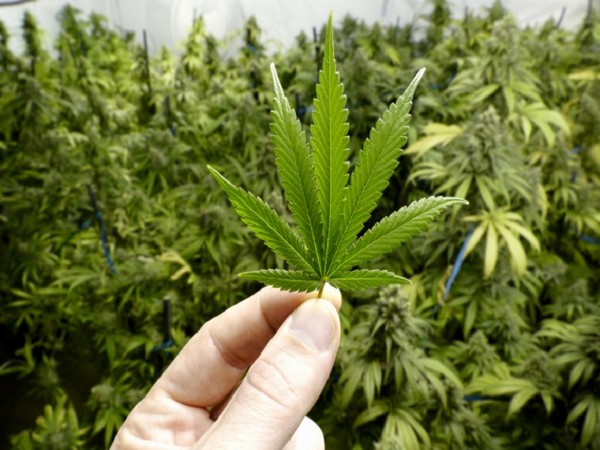Will cannabis legalization in Malawi have positive impact on economy?
The new law ensures the establishment of Cannabis Regulatory Authority that will grant licenses to cultivate the plant followed by other processes like storing, selling, exporting and distributing.

- Country:
- India
Malawi is the latest southern African country to legalize the cultivation of cannabis during the end of February 2020. The country has passed a bill decriminalizing cannabis for medicinal and industrial purposes. Called Malawi Gold, Malawian cannabis is globally renowned as one of the finest sativa strains from Africa. Malawi is one of the largest producers of cannabis in southern Africa. This plant, which can thrive in dry conditions, is a good fit for Malawi’s climate.
New law likely to increase the tourism industry in Malawi
The quality of Malawian cannabis has led it to out-perform marijuana grown in other countries in terms of sales in each market it is introduced in. The international organized groups employ Malawians to buy and produce cannabis from local producers. It not only crosses the country’s border through Mozambique and Zimbabwe to South Africa, but it has also led to an increase in marijuana tourism from holidaymakers seeking the products. The cannabis produced in Malawi (mainly in remote parts of northern and central regions) has even inundated the markets in Tanzania, Kenya, and several other locales.
Malawi is famously dubbed the ‘Warm Heart of Africa’ and has considerable potential for tourism. The legalization of cannabis cultivation is expected to attract a significant amount of tourism. Tourists in Malawi are known to shop for chamba in the Nkhotakota District which has a reputation for producing the best marijuana. With this step, the country is likely to attract cannabis lovers from those countries over the planet where marijuana is legalized as the Malawian product is globally famous as one of the finest sativa strains from Africa. Secondly, the country may also attract tourists from those countries where cannabis is totally banned.
With the new bill, Malawi has joined a league of other African nations that already took conscious steps to tap the economic potential of the plant. From this perspective, a handful of African countries like South Africa, Morocco, Zimbabwe, and Lesotho have either relaxed the laws that criminalize its usage or have totally legalized the cultivation of the plant.
Legalization of cannabis ensures Malawi’s economic growth
As Malawi was actually seeking an alternative to tobacco (its main earner of foreign exchange that is under pressure from anti-smoking campaigns), the parliament has recently passed the bill to allow cultivation for industrial and medicinal uses. According to the Agricultural Minister, Kondwani Nankhumwa, legalization of cannabis will contribute to economic growth as it will contribute in the diversification of the economy and boost the country’s exports, especially at this time when tobacco exports are dwindling.
Around 1.5 years back, the experts found the Netherlands quite rich and prosperous than it was thought, and the credit was given to the then illegal marijuana industry. During that time, the national statistics office CBS revealed that GDP in 2015 was €6.6 billion higher than expected, a 1 percent increase taking total GDP to €690 billion. Now its consumption and sales are allowed also in licensed coffeeshops.
The recreational cannabis has been legalized in the Australian Capital Territory in September last year. Since January 31, 2020, the residents are allowed to grow two plants and carry up to 50g of cannabis. But selling and buying cannabis are still prohibited under Commonwealth law. However, a report by the Prohibition Partners revealed during mid-2019 that the potential market valuation of medicinal cannabis use would reach USD 1.2 billion by 2024 and more than USD 3 billion by 2028. Cannabis is among the most popular drugs to use recreationally in all of Australia. After legalization, the experts believed that the industry could reach a total market value of over USD 12.3 billion by the year 2028.
Thus, we can expect that the new step taken by the Malawian government will assist the country to diversify its agriculture-based economy as there are as many products that can be derived from the cannabis plant in comparison to tobacco. And this new law will place cannabis as a key foreign earner for the country.
The new law reportedly ensures the establishment of Cannabis Regulatory Authority that will grant licenses to cultivate the plant followed by other processes like storing, selling, exporting and distributing. Accordingly, the research firms and institutions will be issued permits to conduct scientific research.
Benefits of cannabis should not be ignored
Majority of the South American countries, the US states, Australia, European countries etc. have already legalized cannabis. As of January this year, 11 states as well as Washington, D.C., have legalized recreational cannabis, and 33 states have legalized it for medical use.
Some of the major benefits people can achieve from cannabis are probable relief from sleep management, reduction in inflammation, losing weight, prevention of diabetes, autism treatment, quickening the process of healing broken bones, and most importantly fighting cancer.
Over 66 percent of Americans support making its use legal and around 90 percent support allowing medical use of cannabis. The governments of all countries need to rethink on all the positive aspects of cannabis and make the law accordingly leaving aside the preconceptions associated with it.
(Disclaimer: The opinions expressed are the personal views of the author. The facts and opinions appearing in the article do not reflect the views of Devdiscourse and Devdiscourse does not claim any responsibility for the same.)
Also Read: How African countries paving ways to promote green building technologies
- FIRST PUBLISHED IN:
- Devdiscourse










